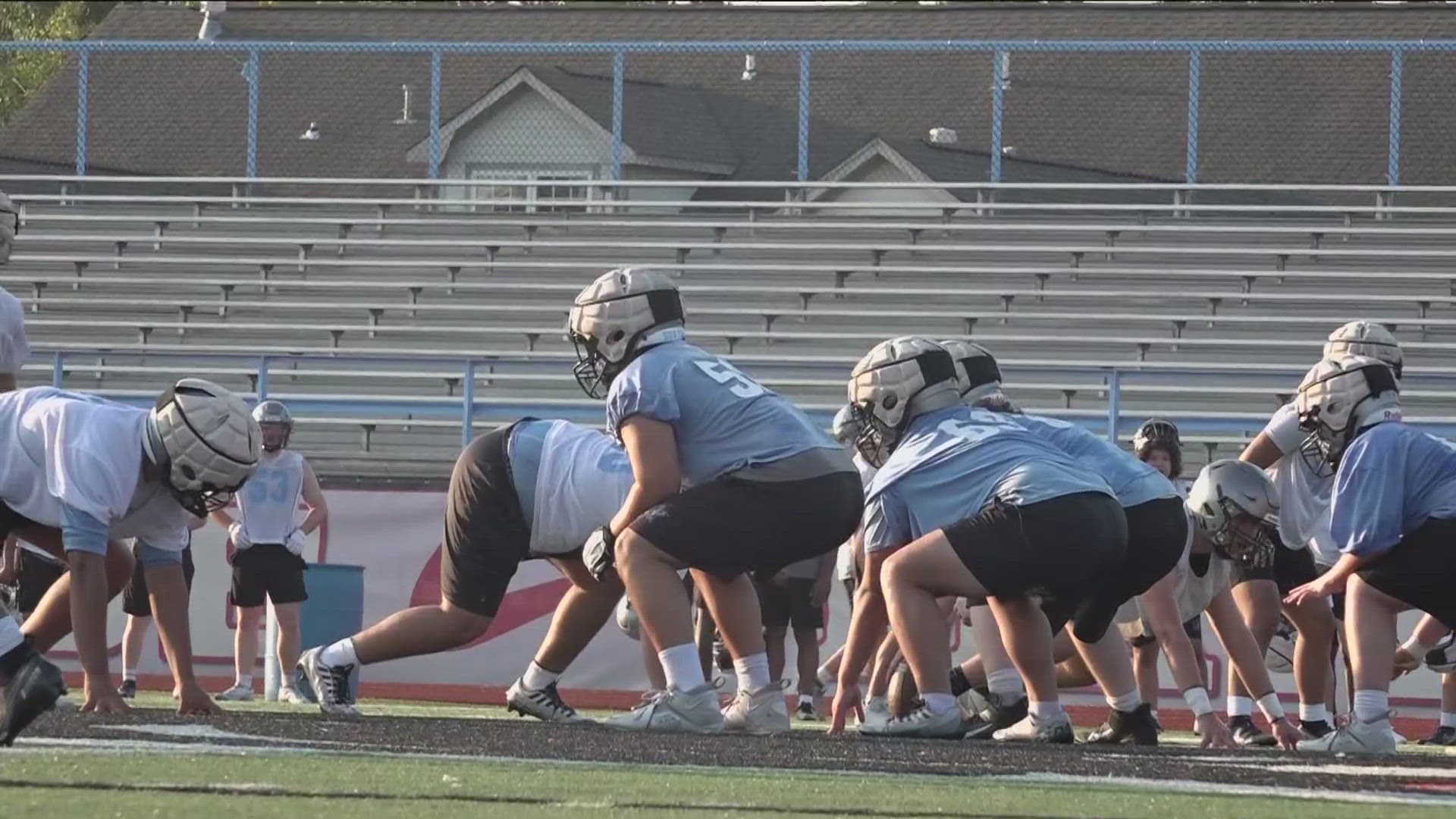ARKANSAS, USA — Over the years, concussion protocol has evolved to further protect athletes, especially in football. Over the last five years, Dr. Dominic Jacobelli with Mercy Hospital in Rogers said how concussions are dealt with has completely flipped.
"Years ago, we were having people stay in a dark, quiet room for days on end. That's not the right thing to do now," Jacobelli said. "If you're getting along with somebody who's still doing that, it might even prolong the time to get back to sport."
Although how concussions are treated has changed, Dr. Upton Siddons with Baptist Health in Greenwood said the symptoms have remained the same.
"Concussion is going to cause headache, dizziness, some kind of disorientation or confusion or some sort of fogginess," Siddons said.
For those athletes, the best thing you can do when figuring out if a player is concussed is to evaluate in a quiet setting.
"We want to take the helmet away from the athlete, so he can't return to play and do a thorough assessment," Jacobelli said. "Ideally, that would be done not even on the sidelines, but in the locker room, so there are no distractions around that kind of thing."
There are also multiple tests you can do to see the severity of a concussion.
"You tell an athlete five words [and] they have to repeat them back. And then you ask them that again five minutes later [as well as] balance exercises, eye movement, tracking ... If the athlete has trouble with that, or has any signs, then that would be an indication to hold the athlete out," Jacobelli said.
Now the best thing to do for an athlete with a concussion is to let them move around after one to two days of rest.
"We want to get the athlete moving with some light exercise because that has been actually shown to improve recovery after a concussion," Jacobelli said.
Back in the '80s and '90s concussions, didn't matter much to football players.
"Aikman or Brett Favre, those guys seem to get concussions all the time," Siddons. "And I think, at that level, that was certainly a role model for me. They were just kind of back out there."
Nowadays, that's the worst thing you can do.
"We now know that that's one of the worst things you can do with even a minor concussion," he said.
While there are still concussions in sports, Siddons said the positives far outweigh the risks.
"I still think that the benefits for many children, for organized youth sports far outweigh any potential risks, and I would encourage everybody to participate in it," he said. "I think if the protocols are observed, then it is, by and large, a very healthy way for a lot of students to learn a lot of life lessons and get a lot of benefit out of school activities."
Many schools, like Whit Overton's team at Mansfield, are doing a lot to help prevent concussions especially with advancements in helmets, even if certain types are only worn during practice.
"We all got Guardian Caps on, that's a big thing," Overton said. "It's a 30, 40% reduction in concussions."
Coach Kim Dameron at Southside High School believes his team has been experiencing fewer concussions over the years.
"Helmet technology has drastically improved over the last few years, and I think it has a lot to do with our kids not being concussed there as much as they used to," Dameron said.
The coaches also said over the last few years, players have been taught to avoid using their head as much as possible while tackling thanks to a targeting rule that's also in place on the college level.
Watch 5NEWS on YouTube.
Download the 5NEWS app on your smartphone:
Stream 5NEWS 24/7 on the 5+ app: How to watch the 5+ app on your streaming device
To report a typo or grammatical error, please email KFSMDigitalTeam@tegna.com and detail which story you're referring to.

